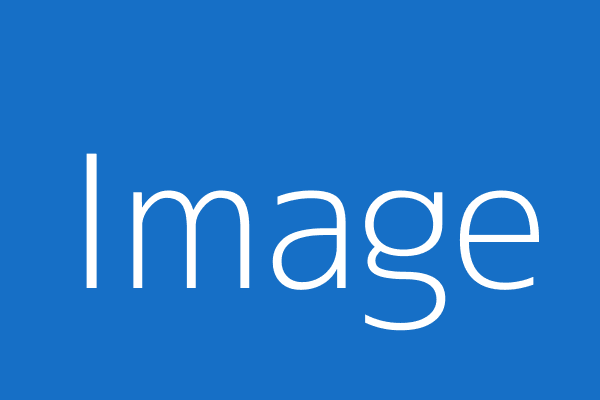
To make the best decision, you should consider your personal situation and other commitments. Additionally, consider your professional goals and the potential impact of each accounting degree program delivery format on your future career.
1. On-campus programs
Traditional accounting degrees are delivered on-campus in brick-and-mortar universities and business schools. This format encourages you to make the most of your education by forging valuable connections with your instructors, peers and potential employers.
High-quality accredited on-campus programs are also preferred by managerial accounting employers. University networking events are often essential for accountancy students to get their foot in the door, especially when aiming for a Big Four job.
This format may not be suitable for you if you are a working professional or unable to find an accredited program close to where you live. Furthermore, this is by far the best way to use any financial aid you have available.
However, when considering a career in accounting it may be worth to make the sacrifices needed to enroll in an on-campus program, as the network opportunities offered by traditional programs are extremely valuable.
2. Online programs
An alternative that often comes up in search results is earning a degree via distance learning. While accredited online programs from top universities are a viable choice, be wary of private for-profit universities offering online accounting programs.
Employers can sometimes consider online degrees to be a weakness on a resume. Another problem with online learning is that in most cases you won’t have the same opportunities to network and meet potential recruiters.
Many big firms only recruit business administration and cost accounting graduates from their target universities. Consequently, it can be difficult to land a job without the connections forged on-campus.
However, there’s a potential solution if you’re a working professional unable to reconcile your studies with other commitments. A quality online degree is a good alternative if you already have some experience or contacts to help your career. Additionally, online certification programs designed to prepare you for the CPA exam and other advanced accounting certifications are an excellent resource.
Interested in learning more? Check out our guides to the best Certified Public Accountant and Certified Management Accountant certification programs!
3. Full-time programs
When it comes to the learning pace, the standard delivery format for both undergraduate and graduate degrees is full-time.
This format is a fast and effective crash-course in the principles of accounting, business law, and other relevant general education areas. However, it’s also very demanding and will not leave you much time to focus on work or other commitments. This delivery format is also the most cost-effective as the fees are collected over a shorter time and you will be able to seek full-time employment sooner.
4. Evening stream
Some universities offer a full-time evening program so that students may reconcile their studies with part-time work. This may be an attractive option, but juggling full-time study and other commitments can be very demanding.
Not all accounting schools offer this type of program, and the quality of the program should come first when making such an important choice.
5. Part-time programs
If you need to work during your studies but would like to benefit from the features of on-campus higher education, a part-time licensure program may be right for you.
While a part-time degree will take longer to complete and may also cost more, it will allow you more time to work as the coursework is spread out over a longer time period. Classes are usually held during the evenings so as not to interfere with your professional life.
Whether your degree is part-time or full-time should not affect your employability. However, this is provided that you make sure to attend networking events and gain financial accounting experience outside the classroom.
Do you already hold a job that you would like to keep? If so, a part-time degree can be the perfect way of achieving the additional qualification to help you advance in your field.
6. Cohort programs
Studies have shown that some students may benefit from learning in teams. Cohort programs apply this principle by having a group of students take the same classes on accounting principles and pursue the same educational path. Consequently, this helps to create a team of peers that can teach and support each other while pursuing their credit hours.
This accounting degree program may be encountered in on-campus programs. However, it’s more often found in online programs that try to mimic the offline learning experiences. Such a program may have an online community of accounting students going through the course at the same pace.
Whether cohort learning is right for you depends on your style of learning. But what you should consider first is the reputation, accreditation and past results of the respective program.
7. Hybrid degrees
Another format that has been growing in popularity is the hybrid program. Essentially, this blends an online accounting degree with some on-campus classes.
Such a degree offers the benefits of face-to-face interaction and is faster to complete than a traditional part-time degree. Short-term residencies may range from one weekend every month to two weeks every few months.
A blended program like this may help you get in touch with potential recruiters and make more of your education than some online degrees. However, challenges remain to be overcome. You’ll need to leave your other commitments to attend the residencies and keep up with a continuous stream of online learning.
Unfortunately, a hybrid program cannot provide the same opportunities as a quality on-campus program. Additionally, employers don’t trust these programs in the same way as others. Therefore, make sure to weigh the pros and cons before enrolling.
8. Fast-track/Accelerated programs
Want to complete your studies faster? If so, you may want to choose the fast track or accelerated routes offered by some accounting schools. Typically, accelerated learning will help you complete a Master’s degree in as little as one year. This is done by spending more hours in the classroom and conducting field activities, like analyzing actual financial statements.
Some universities differentiate between accelerated and fast track programs, with the former being the fastest. Alternatively, others only offer traditional and fast track options. Usually, fast track study can help you complete a Bachelor’s degree in 16 months.
High-achieving students may also earn 150 credits (including a Bachelor’s and a Master’s degree) within a single program, thus fulfilling the requirements for CPA certification faster.
Many accounting degree programs of this kind use blended (online and offline) or distance learning to achieve this. Hence, it’s worth making sure that the quality of the education you receive is the same in both the accelerated and traditional formats.
Which Accounting Class Format is Best?
With so many delivery formats available to accounting students, choosing between them may be daunting. However, you should remember that accounting is a fairly conservative field and traditional, accredited, top-rated programs with excellent business connections remain your fastest route towards a successful accounting career.
Depending on your circumstances, it is up to you to decide how much of your time and resources you can dedicate to your degree – but keep in mind that solid education is the key to thriving as an accountant.
References:
https://www.bostonglobe.com/business/2013/05/18/hybrid-degree-programs-can-provide-best-both-worlds/C4HzPctO25DshB2BIQUqyK/story.html
https://www.gradschoolhub.com/faqs/what-is-a-graduate-school-cohort/
https://www.linfield.edu/dce/accounting-degree.html
https://www.reddit.com/r/Accounting/comments/1yhjp0/what_is_with_the_stigma_surrounding_online/
https://www.pointpark.edu/Academics/Schools/Business/GraduatePrograms/MBA
https://www.snhu.edu/online-degrees/undergraduate-degrees/accounting-BS-online/accelerated.asp
https://www.reddit.com/r/Accounting/comments/247zxs/does_fulltime_or_parttime_status_for_macc_affect/







